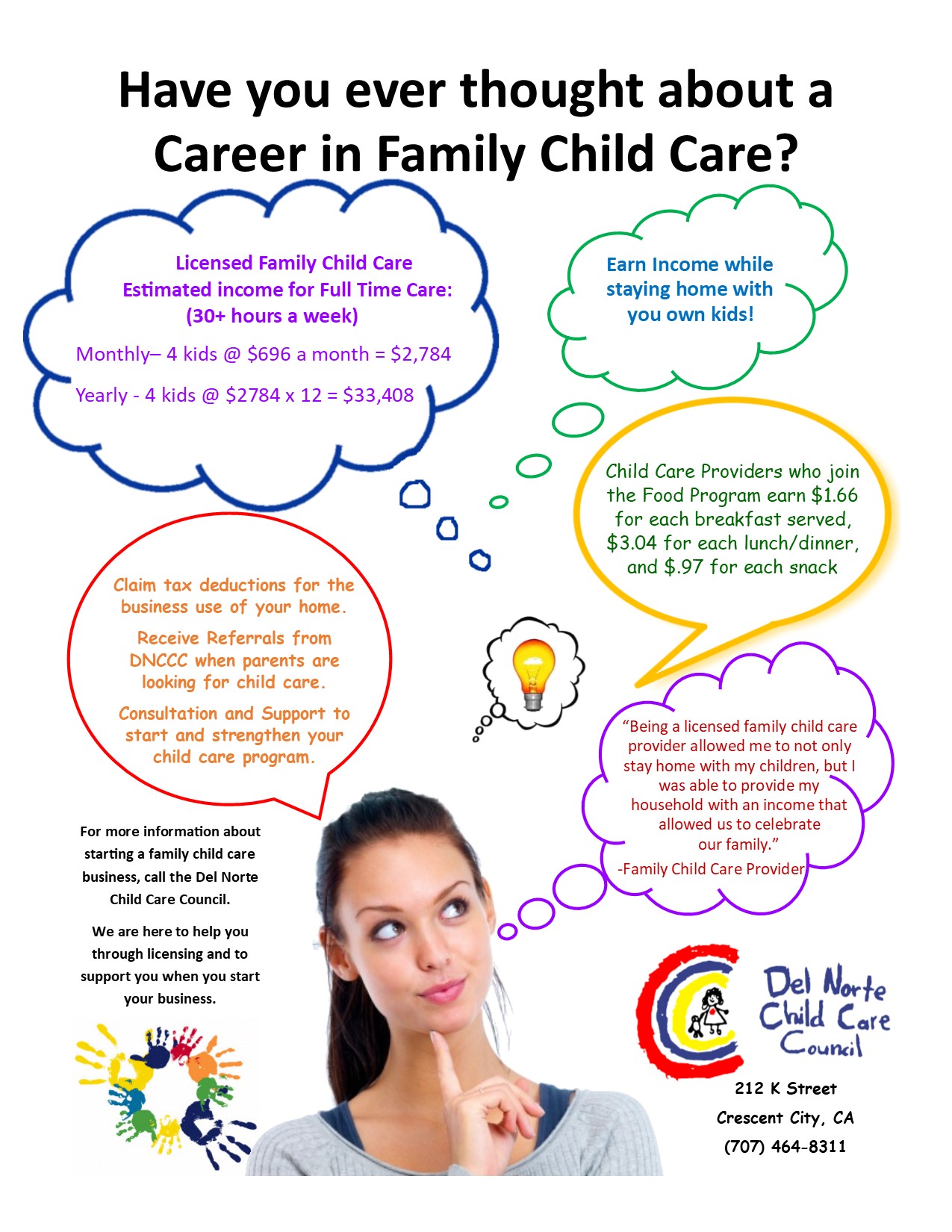
How to Become a Child Care Expert: A Step-by-Step Guide
Becoming a child care provider requires a passion for nurturing young minds. You need patience, understanding, and a love for children.
It’s about more than just watching kids; it’s about guiding their development and ensuring their safety. Child care providers play a crucial role in shaping a child’s early experiences. They create supportive environments where kids learn and grow. Whether in daycare centers or home settings, these professionals offer care that influences future learning and behavior.
If you dream of working with children, becoming a child care provider can be a rewarding career. It offers the chance to impact lives positively. This guide will help you understand the path to becoming a child care provider. Discover the steps, skills, and qualifications needed to start your journey.
Career Paths In Child Care
Embarking on a career in child care can be a rewarding journey. Many choose this path to make a positive impact on young lives. Understanding the various career paths in child care helps you find your perfect fit. This field offers diverse roles, each requiring specific skills and qualifications. Whether you aspire to be a preschool teacher or a daycare manager, there is a path that suits your passion. With the right child care certifications and training programs, you can build a fulfilling career. Let’s explore the different roles and specializations in child care.
Types Of Child Care Roles
Child care careers offer a variety of roles, each with unique responsibilities. Here are some common types of child care roles:
- Preschool Teacher: Focuses on early childhood education. Prepares young children for school. Requires child care qualifications and certifications.
- Daycare Manager: Oversees the daily operations of a daycare facility. Responsible for staff management and facility maintenance. Needs strong organizational skills.
- Nanny Services: Provides personalized care for children in a home setting. Offers flexible hours and individualized attention.
- Family Support Worker: Assists families with children needing extra support. Works closely with social services. Requires empathy and understanding.
Each role plays a vital part in child development. Consider your interests and skills when choosing a path. Child care training programs can help you gain the necessary skills. This ensures you are well-prepared for your chosen career.
Specializations In Child Care
Child care is not a one-size-fits-all profession. Specializations allow professionals to focus on specific areas. Here are some popular specializations:
- Child Development Specialist: Works with children to enhance developmental milestones. Uses tailored approaches to support growth. Requires in-depth knowledge of child psychology.
- Early Childhood Education: Focuses on educating young children. Prepares lesson plans and activities to stimulate learning. Requires specific child care qualifications.
- Child Care Certifications: Specialized certifications can enhance skills. They open doors to advanced roles and responsibilities.
Specializations offer opportunities for career growth. They allow you to focus on areas you are passionate about. Consider pursuing specialized child care training programs. These programs equip you with the skills needed for advanced positions. Explore various specializations to find your niche in the child care industry.

Essential Skills Required
Becoming a child care provider involves much more than just supervising children. It’s about fostering a nurturing environment where children can grow and learn. Essential skills are crucial for anyone aiming to excel in this field. These skills ensure that children receive the best care and support during their early years. Whether you’re interested in early childhood education or managing an early learning program, mastering these skills is key to success.
Interpersonal Skills
Interpersonal skills are vital for anyone working with children. Building relationships with children and their families is an important part of being a child care provider. Effective communication skills help in understanding and addressing the needs of each child. Here are some key interpersonal skills:
- Active Listening: Pay attention to what children say and show empathy.
- Patience: Handle situations calmly, even when children are challenging.
- Empathy: Understand children’s feelings and perspectives.
- Conflict Resolution: Manage disputes between children peacefully.
Being able to communicate with parents is equally important. It ensures that everyone is on the same page regarding the child’s development and care needs. These skills also aid in behavior management, helping to create a nurturing environment that encourages play-based learning. Here’s a simple table that highlights the benefits of strong interpersonal skills in child care:
| Skill | Benefit |
|---|---|
| Active Listening | Improves understanding of child needs |
| Patience | Creates a calm and positive atmosphere |
| Empathy | Builds trust and rapport with children |
| Conflict Resolution | Reduces tension and promotes harmony |
Organizational Skills
Organizational skills are essential for managing daily tasks efficiently. A child care provider must juggle various responsibilities, from planning activities to ensuring child safety practices are followed. These skills help in maintaining a structured and safe environment for children. Consider these aspects of organizational skills:
- Time Management: Allocate time effectively for different activities.
- Record Keeping: Maintain accurate records of children’s progress and care.
- Scheduling: Plan daily routines and activities that support child development.
- Resource Management: Ensure all materials for learning and play are available.
Organizational skills are also important for meeting the requirements of childcare certification. They ensure that early learning programs are delivered smoothly and that all aspects of child care are covered. Here’s why organizational skills matter:
- Time Management: Helps in balancing multiple tasks without stress.
- Record Keeping: Provides a clear overview of each child’s needs and progress.
- Scheduling: Ensures children engage in varied and enriching activities.
- Resource Management: Keeps the learning environment well-stocked and prepared.
By mastering these skills, a child care provider can offer a well-rounded and effective early childhood education experience.
Educational Requirements
Becoming a child care professional is a rewarding journey that requires a solid educational foundation. Understanding the educational requirements is crucial for those passionate about nurturing young minds. From degrees to certifications and online courses, there are various paths to gain the necessary knowledge and skills. This guide will explore the essential educational elements to help you thrive in this fulfilling profession.
Degrees And Certifications
To become a successful child care professional, obtaining a relevant degree is often a key step. Degrees in Early Childhood Education provide a comprehensive understanding of child development, parenting education, and nurturing environments. These programs typically cover:
- Child Development
- Preschool Teacher Training
- Child Safety Practices
- Daycare Management
Alongside degrees, certifications play a vital role in enhancing your credibility and skills. Child Care Certification programs are designed to equip you with specific caregiving skills essential for working with children. Some popular certifications include:
- Child Development Associate (CDA)
- Certified Childcare Professional (CCP)
- National Administrator Credential (NAC) for daycare management
The following table outlines some common degrees and certifications:
| Program | Focus Areas |
|---|---|
| Bachelor’s in Early Childhood Education | Child Development, Classroom Management |
| Child Development Associate (CDA) | Caregiving Skills, Child Safety Practices |
These educational paths provide a structured approach to learning, ensuring you are well-prepared for a career in child care.
Online Courses And Workshops
For those who prefer flexible learning options, online courses and workshops offer a valuable alternative. Online courses allow you to study child care principles at your own pace. Topics often include:
- Early Childhood Education
- Parenting Education
- Child Safety Practices
- Daycare Management
Workshops provide hands-on experiences, focusing on practical applications of caregiving skills. These sessions often cover:
- Nurturing Environments
- Preschool Teacher Training
- Effective Communication with Children
Below is a table summarizing popular online course platforms and workshop providers:
| Platform/Provider | Offerings |
|---|---|
| Coursera | Early Childhood Education, Child Development |
| Udemy | Child Safety Practices, Parenting Education |
| Local Community Centers | Workshops on Nurturing Environments |
Online courses and workshops are excellent for updating skills and staying current with child care trends. They offer a practical approach to learning, making them a popular choice among aspiring child care professionals.

Gaining Experience
Embarking on a journey to become a child care professional requires dedication and a genuine passion for nurturing children. Gaining experience is a crucial step in developing the necessary skills for a successful child care career. Whether you’re aiming to become a daycare assistant or a preschool teacher, hands-on experience is invaluable. It helps you understand child development and refine your child care skills. Exploring various avenues for gaining experience will prepare you for a rewarding future in early childhood education.
Volunteering Opportunities
Volunteering is a fantastic way to start working with children. It offers a chance to engage with kids in a real-world setting. Many organizations welcome volunteers who wish to contribute to educational programs for children. Here’s how you can find volunteering opportunities:
- Local schools often seek volunteers to assist with extracurricular activities.
- Community centers frequently run children’s programs needing extra help.
- Libraries sometimes host reading sessions where volunteers can participate.
Volunteering not only builds your child care skills but also strengthens your understanding of child development. It’s a stepping stone towards earning a child care certification. Volunteer work enhances your resume, showcasing your commitment to a child care career. Use these opportunities to observe and learn from experienced caregivers. Be proactive and ask questions. This experience will be invaluable as you progress in early childhood education.
Internships In Child Care
Internships provide structured learning experiences tailored for aspiring child care professionals. Participating in internships allows you to work alongside seasoned experts. It’s a practical way to gain insights into educational programs for children. Internships can be found in various settings:
| Type of Internship | Description |
|---|---|
| Daycare Assistant | Assisting in daily activities and learning the basics of child care. |
| Preschool Teacher | Observing and supporting teaching methods in a preschool environment. |
Internships are crucial for those seeking a child care certification. They provide real-world experience, preparing you for various roles in child care. Embrace every opportunity to develop your child care skills. Internships offer a platform to practice early childhood education theories. They also help you build a network with professionals in the field. This network can be beneficial for future career opportunities. An internship can be a pivotal step in shaping your child care career.
Finding A Job
Finding a job in child care can be a fulfilling journey. Whether you’re just starting out or have some experience, securing a position requires a blend of strategy and connection. Understanding the landscape of child care jobs and exploring various opportunities is crucial. This section will guide you through effective job search strategies and the importance of networking in the industry. Get ready to embark on a rewarding career path!
Job Search Strategies
Embarking on a search for child care jobs can seem daunting, but with the right approach, it becomes manageable. Start by crafting a compelling resume that highlights your strengths. Focus on resume writing for childcare by emphasizing your child development skills and any childcare certifications you possess. Next, use online platforms to your advantage. Websites like Indeed and Care.com list numerous child care careers. Create profiles on these platforms and set up job alerts to stay updated on new openings. Consider using a table to organize potential job opportunities:
| Website | Job Alerts | Profile Completion |
|---|---|---|
| Indeed | Yes | 100% |
| Care.com | Yes | 85% |
Don’t forget about local resources. Libraries and community centers often have job boards. Visit them regularly to find opportunities that might not be online. Prepare for interviews by practicing common questions and answers. This interview preparation can boost your confidence and help you stand out.
Networking In The Industry
Networking in childcare is a powerful tool. Building relationships with professionals can open doors to job opportunities. Attend events and workshops related to early childhood education to meet other early years professionals. Join professional organizations. Groups like the National Association for the Education of Young Children (NAEYC) provide networking opportunities and resources. Engage with these groups by attending meetings or participating in online forums. Leverage social media. Platforms like LinkedIn allow you to connect with others in the field. Follow relevant groups and participate in discussions. Share your thoughts on child development topics to showcase your expertise.
- Attend childcare workshops and seminars.
- Join online forums and discussion groups.
- Connect with alumni from your education programs.
Networking not only helps in finding jobs but also keeps you informed about industry trends. It’s about building a community that supports and guides you throughout your career.

Building A Resume
Becoming a child care worker involves more than just a love for children. It requires a well-crafted resume to showcase your skills and experiences. A strong resume is your ticket to securing daycare jobs and positions in early childhood education. Building a resume involves highlighting your professional experience, child care skills, and relevant qualifications. This step is crucial to stand out in the competitive field of child care.
Highlighting Relevant Experience
Highlighting relevant experience is key in resume writing for child care positions. Employers want to see your past roles and responsibilities related to child development. They are interested in how you’ve worked with children before. Consider the following tips:
- Start with your most recent job and work backward.
- Include job titles, company names, and employment dates.
- Describe your duties, focusing on child care skills and accomplishments.
For example, if you have experience in a daycare setting, mention specific tasks:
| Task | Description |
|---|---|
| Child Supervision | Ensured safety and well-being of children aged 1-5 years. |
| Activity Planning | Developed engaging educational activities for child development. |
Also, mention any child care certification you hold. This adds credibility to your application. Highlighting these experiences shows your capability in working with children and your understanding of early childhood education.
Crafting A Strong Cover Letter
Crafting a strong cover letter is as important as your resume. It’s your chance to express your passion for child care and why you are the right fit for the job. A cover letter complements your resume by adding a personal touch. Follow these steps to write an effective cover letter:
- Begin with a professional greeting. Address the hiring manager by name if possible.
- In the opening paragraph, introduce yourself and mention the position you’re applying for.
- Next, discuss your professional experience and childcare qualifications. Mention specific instances where your skills benefited children.
Here’s a simple structure:
- Opening: State your interest in the daycare jobs and your excitement about working with children.
- Body: Highlight your child care skills and experiences. Explain how your background in child development makes you a suitable candidate.
- Conclusion: Thank the employer for their time and express your eagerness to discuss your application further.
Keep your tone friendly yet professional. A well-written cover letter can make a strong impression, enhancing your chances of landing an interview.
Continuing Education
Continuing education is essential for anyone aspiring to excel in childcare. It helps in staying informed about the latest practices and enhancing skills. This education ensures caregivers meet licensing requirements for childcare and adapt to changes in the field. It opens doors to better child care job opportunities and can be a stepping stone to acquiring a child care certification. Engaging in continuing education for childcare can significantly boost your competence and confidence.
Professional Development Courses
Professional development courses are vital for childcare professionals aiming to advance their careers. These courses cover a range of topics, including child development courses and daycare management skills. They provide insights into early childhood education, empowering caregivers to make informed decisions. Here are some benefits of enrolling in professional development courses:
- Enhances knowledge about child care industry trends.
- Improves daycare management skills.
- Fulfills licensing requirements for childcare.
- Boosts qualifications for child care job opportunities.
Below is a table of popular courses:
| Course Name | Duration | Focus Area |
|---|---|---|
| Child Development Basics | 6 weeks | Child Psychology |
| Daycare Management Skills | 4 weeks | Administration |
| Early Childhood Education | 8 weeks | Teaching Methods |
Staying Updated With Trends
Staying updated with trends in the childcare sector is crucial. The field evolves rapidly, with new methods and technologies emerging. Understanding current child care industry trends ensures caregivers offer relevant and effective services. Here are ways to stay informed:
- Join professional child care associations for networking.
- Subscribe to childcare training programs newsletters.
- Participate in workshops and seminars.
Being aware of trends also helps in meeting licensing requirements for childcare. It can guide you in choosing relevant child development courses and training programs. Staying informed enhances your value in the market, making you a preferred choice for child care job opportunities. In the fast-paced world of childcare, ongoing education is not just an option. It’s a necessity for those looking to succeed.
Challenges And Rewards
Embarking on a journey to become a child care professional is both challenging and rewarding. The path requires dedication, patience, and a deep love for children. Working with children involves more than just supervising playtime. It demands a nurturing environment and a focus on child development. Aspiring caregivers must be ready for the challenges and embrace the rewards that come with the job.
Common Challenges Faced
Working with children presents several challenges. Each child is unique, and caregivers must adapt to various personalities and needs. Understanding child development is crucial. This involves recognizing the physical, emotional, and social milestones each child should reach. It can be daunting, especially without proper child care training. Child safety practices are another significant challenge. Ensuring a safe environment requires constant vigilance and quick responses to potential hazards. Caregivers must be knowledgeable about first aid and emergency procedures. This responsibility can be overwhelming, especially in busy settings. Here are some common challenges faced by child care professionals:
- Behavioral issues: Handling tantrums or aggressive behavior.
- Communication barriers: Engaging with children who have limited vocabulary.
- Parental expectations: Meeting diverse and sometimes conflicting demands.
Child care certification can help in overcoming these challenges. Professional development in child care offers tools and techniques to improve caregiving skills. Continuous learning is vital to succeed in this field.
Rewarding Aspects Of The Job
Despite the challenges, the rewards of working in child care are immense. Seeing a child grow and develop under your care is profoundly satisfying. The bonds formed with children can be heartwarming. Providing emotional support for children and witnessing their joy and curiosity is priceless. Here are some rewarding aspects of the job:
- Personal growth: Developing patience, empathy, and problem-solving skills.
- Impactful relationships: Building trust and connections with children and their families.
- Contribution to society: Playing a role in shaping future generations.
Early childhood education is a field that offers immense personal satisfaction. Caregivers help lay the foundation for a child’s future success. Through child care training, they learn to create nurturing environments that foster growth and learning. Moreover, the joy of a child’s laughter and the pride of witnessing their milestones are irreplaceable. These moments make the challenges worthwhile. The journey in child care is one of constant learning and fulfillment.
Frequently Asked Questions
How Long Does It Take To Become A Childcare Worker?
Becoming a childcare worker typically takes several months to two years. Requirements vary by location and role. Some positions need certifications or associate degrees, while others require on-the-job training. Completing courses in early childhood education enhances employability. Always check local regulations for specific requirements.
Do Daycares Make A Lot Of Money?
Daycares can be profitable, but success depends on location, management, and demand. High-quality services and competitive pricing attract more clients. Expenses like staffing, rent, and supplies impact profit margins. Research and strategic planning are crucial for financial success in the daycare business.
What Is Needed To Open A Daycare In Texas?
To open a daycare in Texas, obtain a Child Care License from the Texas Health and Human Services. Complete required training, submit background checks, and meet facility standards. Ensure compliance with health and safety regulations. Prepare a business plan and secure a suitable location.
What Is The Minimum Qualification To Work In Childcare?
To work in childcare, you typically need a high school diploma or GED. Many positions require certification in early childhood education or a related field. CPR and first aid certification are often essential. Local regulations may vary, so check specific requirements in your area.
Conclusion
Becoming a child care provider is a rewarding journey. It requires patience, empathy, and dedication. Start by understanding children’s needs and interests. Develop skills through training and practice. Build trust with parents and children alike. Keep learning and adapting to new challenges.
Create a safe, nurturing environment for growth. Share joy, laughter, and learning every day. Connect with other caregivers for support and ideas. Each day brings new experiences and smiles. Your role is vital in shaping young minds. Remember, the impact you make lasts a lifetime.
Embrace the journey of caring, teaching, and inspiring.





